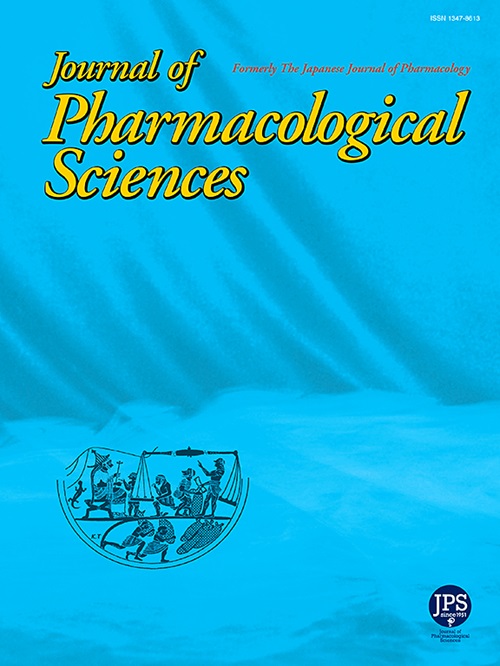来源于血管内皮细胞的CCN1损害阿尔茨海默病模型小鼠的认知功能
IF 2.9
3区 医学
Q2 PHARMACOLOGY & PHARMACY
引用次数: 0
摘要
血管内皮细胞表达分子调节神经元功能。虽然脑血管失调是阿尔茨海默病(AD)的一个标志,但在疾病进展过程中,血管内皮细胞分子表达变化对神经元功能的影响尚不清楚。在本研究中,我们证明了在小鼠AD慢性期血管内皮细胞中高表达的细胞通信网络因子1 (CCN1)参与了认知功能的损害。从AppNL-G-F小鼠脑中分离的血管内皮细胞显示包括CCN1在内的基因的差异表达。CCN1处理减少了培养海马细胞的突触数量,并改变了与形态学改变相关的基因表达。在体内,血管内皮细胞中CCN1沉默的AppNL-G-F小鼠表现出较高的脊柱密度和改善的空间学习能力。小鼠海马中小胶质细胞/巨噬细胞、星形胶质细胞和β淀粉样蛋白(Aβ)积累的数量未见明显变化。这些结果表明,CCN1是通过神经血管相互作用调节神经功能障碍的关键因子。本文章由计算机程序翻译,如有差异,请以英文原文为准。
CCN1 derived from vascular endothelial cells impairs cognitive function in Alzheimer’s disease model mice
Vascular endothelial cell-expressing molecules regulate neuronal function. Although cerebrovascular dysregulation is a hallmark of Alzheimer’s disease (AD), the effect of changes in molecular expression on neuronal function in vascular endothelial cells during disease progression is not clear. In this study, we demonstrated that the cellular communication network factor 1 (CCN1), which is highly expressed in vascular endothelial cells during the chronic stage of AD in mice, is involved in the impairment of cognitive function. Vascular endothelial cells isolated from the brains of AppNL-G-F mice show differential expression of genes, including CCN1. CCN1 treatment decreased the synaptic number in cultured hippocampal cells, with changes in the expression of genes associated with morphological changes. In vivo, AppNL-G-F mice with CCN1 silencing in vascular endothelial cells demonstrated high spine density and improved spatial learning. No significant change was observed in the number of microglia/macrophages, astrocytes, and amyloid-beta (Aβ) accumulation in the hippocampus of the mice. These results suggest that CCN1 is a key factor modulating neurological dysfunction through neurovascular interactions.
求助全文
通过发布文献求助,成功后即可免费获取论文全文。
去求助
来源期刊
CiteScore
6.20
自引率
2.90%
发文量
104
审稿时长
31 days
期刊介绍:
Journal of Pharmacological Sciences (JPS) is an international open access journal intended for the advancement of pharmacological sciences in the world. The Journal welcomes submissions in all fields of experimental and clinical pharmacology, including neuroscience, and biochemical, cellular, and molecular pharmacology for publication as Reviews, Full Papers or Short Communications. Short Communications are short research article intended to provide novel and exciting pharmacological findings. Manuscripts concerning descriptive case reports, pharmacokinetic and pharmacodynamic studies without pharmacological mechanism and dose-response determinations are not acceptable and will be rejected without peer review. The ethnopharmacological studies are also out of the scope of this journal. Furthermore, JPS does not publish work on the actions of biological extracts unknown chemical composition.

 求助内容:
求助内容: 应助结果提醒方式:
应助结果提醒方式:


